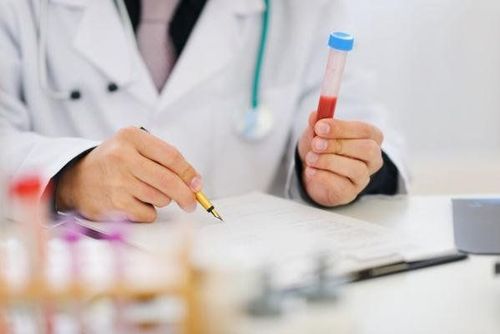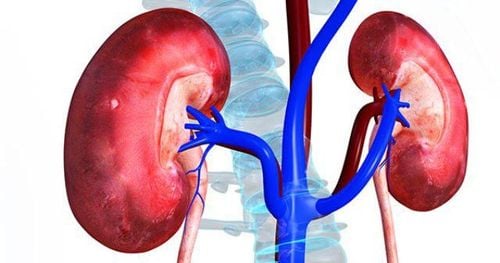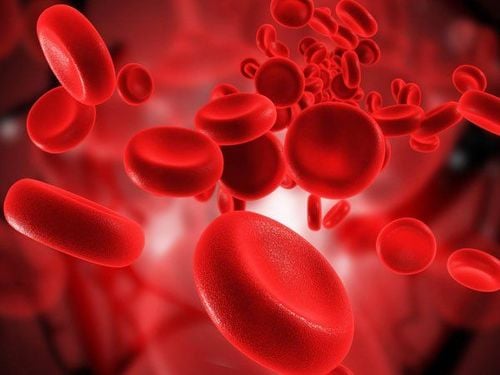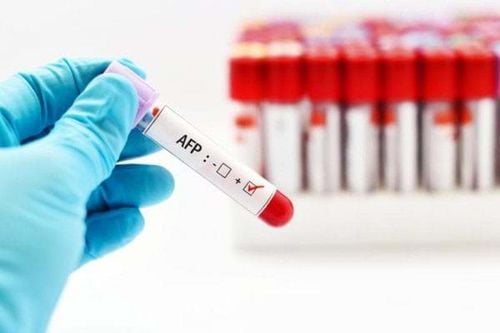This is an automatically translated article.
Chloride is an electrolyte that maintains the balance between fluids and acids - bases in the body. The blood chlorine test will help detect the concentration of chlorine in the blood, thereby making certain diagnoses about health conditions.
1. Learn about blood chlorine test
1.1. What is Chloride? Electrolytes include electrically charged minerals in the body that maintain the balance of water and other fluids in the body. Of these, chloride is the most important electrically charged mineral, often working with other electrolytes such as sodium and potassium to help balance acids and bases in the body.This balance is closely related to the normal functioning of the muscles, heart and nervous system. Along with that, the body's absorption and excretion of fluids also need this balance to remain stable. When hypochloremia occurs, the body can go into a state of dehydration. On the contrary, if the blood chlorine level rises too high, this is a sign that your kidneys are having problems.
When there is an imbalance in blood chlorine levels, the body will have the following symptoms:
Fatigue, sluggishness. Weakness, difficulty breathing. Persistent diarrhea, frequent vomiting. Thirsty. High blood pressure,... 1.2. What is a blood chlorine test? A blood chlorine test, also known as a Cl test, is a basic blood test used to measure a patient's blood chlorine level. The results of this test indicate whether the current chlorine level in your blood is normal or out of balance, thereby helping doctors make certain diagnoses about your health condition.
Health problems that can be detected through a blood chlorine test include:
Acidosis or alkalinity. Kidney disease. Cardiovascular problems. Liver failure. High blood pressure,... Diabetes. These conditions can cause electrolyte imbalances, which in turn change blood chlorine levels. Usually, when a patient shows signs of weakness, is constantly tired, or shows signs of dehydration, a blood chlorine test is one of the most frequently suggested by a doctor.

Xét nghiệm clo máu dùng để đo nồng độ clo máu của bệnh nhân
2. What should be paid attention to before performing a blood chlorine test?
Blood chlorine test is a basic test and the method is relatively simple. However, some daily activities can lead to changes in blood chlorine levels in the body, thereby making test results inaccurate.
To limit this risk, patients need to take some precautions before taking the test:
Avoid drinking alcohol at least 24 hours before taking the sample. Vitamins and supplements should not be taken prior to the test because these supplements can increase chloride levels. Certain medications can also cause blood chlorine levels to be higher than normal including: One: Cortisone, which is commonly used to relieve pain and inflammation.
Two: Estrogen,...
Third: Ammonium chloride, used to treat hypochloremia or metabolic alkalosis.
Four: Non-steroidal anti-inflammatory drugs such as ibuprofen, naproxen,...
3. Meaning of blood chlorine test results
In the normal range, blood chloride levels range from 96 to 106 Meq/L.
If your blood chlorine level is higher than 106 Meq/L, you are likely to have kidney problems such as renal tubular acidosis (which occurs when the kidneys are unable to completely remove acid from the blood into the urine). . In addition, high blood chloride levels can also come from the following causes:
Glaucoma medications. Bromide poisoning. Respiratory alkalosis: occurs when there is low carbon dioxide in the patient's blood. Severe dehydration. Low chloride levels in the blood can come from many different causes, can be temporary problems such as dehydration, vomiting, ... or can also be a sign of serious medical conditions such as:
Heart failure congestive heart failure: the patient's heart muscle is weakened, unable to pump blood normally to the body. Addison's disease: The adrenal glands are underactive and don't make enough of certain hormones. Metabolic alkalosis: occurs when potassium and chloride levels are low in the blood. Hyperaldosteronism: can cause high blood pressure and weakness. Chronic lung disease.

Nếu nồng độ clo máu của bạn cao hơn 106 Meq/L, bạn có khả năng đang gặp các vấn đề về thận
4. Blood chlorine test procedure
Blood tests in general and blood chlorine tests in particular have similar procedures. In a blood chlorine test, blood is drawn from a vein on the inside of the elbow or the back of the hand. Before drawing blood, the technician will disinfect the area to prevent infection.
Then, the patient's arm will be wrapped with a wire so that the veins will emerge, so that the technician can easily identify and they will draw blood with a fine needle at a random vein. Finally, the patient will be bandaged at the blood collection site with a bandage.
The blood draw process only takes a few minutes, so it's not a "scary" test and anyone can do it.
5. Does a blood chlorine test carry any risks?
A blood test is a basic and routine test in hospitals, so there are very few risks associated with this test.
Some of the very rare side effects for this test include:
Excessive bleeding. Dizziness, fainting. Hematoma under the skin causing bruising. Infection at the site of blood collection,... It can be said that a blood chlorine test that helps detect abnormalities in blood chlorine levels in the body is a simple but extremely useful test in helping to detect the electrolyte-related health problems. The test procedure is very quick and safe, with no absolute contraindications.
Please dial HOTLINE for more information or register for an appointment HERE. Download MyVinmec app to make appointments faster and to manage your bookings easily.
Reference source: healthline.com; webmd.com













